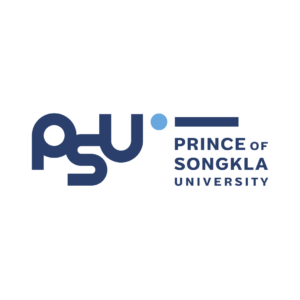Prince of Songkla University (PSU) is a world-class research university, the first university in southern Thailand established in 1967. PSU is committed to academic excellence, reputable research and innovation, being one of the nine national research universities, and top 10 comprehensive universities in Thailand by QS ranking.
PSU is a leading research university in Southeast Asia building academic and innovation leadership and human resources with professional competence. PSU’s five campuses, in Hat Yai, Pattani, Phuket, Surat Thani and Trang, produce graduates able to compete in the international job market, by applying their knowledge in real life and in community projects.
Academic: GPA of 3 or above on their studies to date
English Language:
– IELTS: 6
– TOEFL iBT: 78
– Duolingo English Test: 100
13 Agustus 2024 – 12 Desember 2024
Applicants
Applicants : 14 students
GPA : 3.55-4.00
TOEFL iBT Score : 79
IELTS Score : 4-7.5
Duolingo English Test Score : 125
Awardees
Awardees : 3 students
GPA : 3.56-3.95
TOEFL iBT Score : –
IELTS Score : 6-7.5
Duolingo English Test Score : –
Available Courses
Web development workflow; web wireframes and mock-up; HTML basics; CSS basics; code validation; accessibility and usability
Tools application and computer program for drawing; various forms of digital files for digital images
Thinking out of the box and generate ideas; developing creativity thinking through brainstorming; mind mapping; reframing and role playing
Fundamentals of psychology; entrepreneurship concepts; theory of mindset; personality and characteristics; entrepreneurial skills in the 21st century; understanding the importance of digital disruption; secrets of successful entrepreneur’s mindset
Meaning, nature and methods of economics study; economic problems; functioning of the economy; demand, supply price, elasticity of demand and supply, application of demand and supply; The overall pictures of the economy; theories and methods of measurement of output; national income; inflation; unemployment; interest rates; money supply; price level; wages; balance of payment; monetary and fiscal policy; economic development; and economic growth
Management and entrepreneurship concepts, roles and skills of an executive; types and characteristics of entrepreneurs; planning, organizing, leading, controlling, business ethics, and use of management tools in the digital era and the role of innovation in business and management
The importance of money saving; saving target; saving and spending plan to achieve target effectively; calculation of saving for emergency case
Implementation of mathematical theories and tools for business planning; analysis for decision making and problem solving; operation systems; forecasting techniques; introduction to manufacturing planning; introduction to quality control
Concepts of data analytics for business; business analytics process; data collection and data types; descriptive statistics; probability theory; basic Excel models; design principles for effective visuals
Concepts of innovation and creativity; setting a strategy for innovation and creativity at a firm level; fundamentals of entrepreneurship theory: process and practice; innovative idea generation in establishing a start-up business; screening the external environment for business opportunities; developing market research skills; acquiring entrepreneurial competencies to utilize in the future
Understanding business ethics; sustainability; demonstrating corporate social responsibility; and analyzing other ethical issues occurring in 21th century; understanding stakeholder theory; individual moral philosophy; understanding ethics in marketing; analyzing business’ stakeholders; analyzing ethical situation using moral philosophy; applying critical thinking skill in ethical dilemma situations; criticizing actions of others in relation to sustainability problems; criticizing ethical problems in advertising
Defining the nature of negotiation; developing negotiation strategy and implementation for different stakeholders; applying negotiation principles in different business situations; developing bargaining and conflict resolution skills in a cross-cultural setting
Roles; importance; components and scope of the hospitality and tourism industry; operating sectors in the hospitality and tourism industry; transportation; accommodations; food and beverage; attractions and entertainment; trends; current situation; ethical issues; career opportunities
Type of inventory; inventory costs; inventory management models; warehouse activities; efficiency improvement in inventory and warehouse management; inventory and warehouse management for entrepreneurship
Principles and methods of doing business with multinational companies; modes of international business entry; models and strategies of multinational corporate management; business functions in international business management: international marketing, international finance, and international human resource management; impact of international economic integration
Cultural diversity in ASEAN countries for business operation; communication skills for business operation in ASEAN countries; development of the important trading partner in ASEAN in terms of economics, socio-cultural, and political; field trip for exchanging experiences with entrepreneurs running business in ASEAN countries
*All IISMA students are required to enroll this course.

